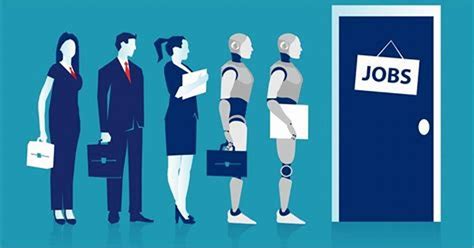The Impact of AI on the Future of Smart Contract Interoperability
As the world moves towards more decentralized and autonomous systems, smart contracts have become a key enabler. These self-executing contracts on their own terms can facilitate seamless interaction between different blockchain networks, enabling greater efficiency and flexibility in different applications.
One of the major benefits of smart contract interoperability is their ability to adapt to different network architectures. The use of artificial intelligence has significantly improved this aspect by enabling more sophisticated and adaptive solutions for data processing, decision-making, and execution. In this article, we will explore the impact of artificial intelligence on smart contract interoperability and explore the potential implications for different industries.
The Rise of AI in Smart Contract Interoperability
Artificial intelligence (AI) has helped advance smart contract interoperability through several key factors:
Enhanced Data Integration: AI algorithms enable seamless data integration across different blockchain networks, ensuring that relevant data is available and accurately interpreted. This facilitates more efficient decision-making and reduces the risk of errors.
Enhanced Automated Decision-Making: AI-powered systems can analyze vast amounts of data in real-time and make informed decisions about contract execution and network optimization. This leads to better outcomes for users and increased efficiency for smart contract providers.
Predictive Analytics
: By analyzing historical transaction patterns and market trends, AI algorithms can predict potential issues or bottlenecks before they occur. This proactive approach allows developers to anticipate and mitigate risks, ensuring a more stable and reliable ecosystem.
Benefits of AI-enhanced smart contract interoperability
Integrating AI into smart contract interoperability offers many benefits that can transform various industries:
Improved efficiency: By automating manual processes and streamlining decision-making, AI-based systems can significantly reduce the time and costs associated with developing, deploying, and maintaining distributed applications.
Improved security: AI-based solutions can detect potential vulnerabilities and anomalies in smart contracts, reducing the risk of malicious attacks or exploits that compromise network security.
Improved User Experience: AI-powered smart contract platforms can provide more intuitive and personalized user interfaces, improving user engagement and satisfaction.
Examples of AI-Powered Smart Contract Interoperability
There are several examples that demonstrate the impact of artificial intelligence on smart contract interoperability:
Cross-Chain Interoperability: Companies like Compound and Aave are using AI-powered algorithms to enable seamless interaction between different blockchain networks.
Automated Governance: Platforms like DeFi (Decentralized Finance) and DAOs (Distributed Autonomous Organizations) are using AI-powered decision-making mechanisms to optimize network performance and ensure compliance with governance rules.
Predictive Maintenance: AI-based systems can predict potential issues or bottlenecks in smart contract networks, enabling proactive maintenance and reducing downtime.
Challenges and Future Directions
The benefits of AI-enhanced smart contract interoperability are clear, but several challenges need to be addressed:
Complexity of Interoperability: The growing number of blockchain networks and protocols requires more sophisticated solutions that adapt to different architectures.
2.